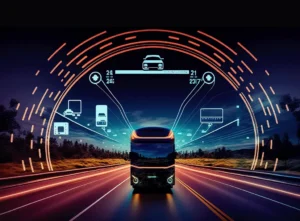Imagine this- You're cruising down the highway in your electric vehicle (EV), enjoying a smooth and quiet ride, when you notice your battery is running low. In the past, this would mean finding the nearest charging station and settling in for a lengthy pit stop.
But thanks to the relentless pursuit of innovation in the EV industry, the landscape is changing dramatically.
In this blog, we'll explore the cutting-edge advancements in EV charging technology, with a special focus on battery innovations that promise to revolutionize the way we charge our electric vehicles. Get ready to be amazed by the latest developments in EV charging and wireless EV charging!
The Need for Speed
EV charging has come a long way in recent years. The early days of electric vehicles were characterized by slow charging times, limited range, and hefty price tags. However, advancements in battery technology have addressed many of these challenges, making EVs a more practical and affordable choice for consumers. Fast charging is one of the most sought-after features, as it reduces the downtime required for replenishing your vehicle's battery. Let's delve into the key innovations driving the evolution of fast charging:
- High-Energy-Density Batteries
- Advanced Cooling Systems
- Bi-Directional Charging
- Wireless EV Charging
The heart of an electric vehicle is its battery, and the key to faster charging lies in developing batteries with higher energy density. Batteries with greater energy density can store more power, which translates to longer ranges and faster charging times. Researchers and manufacturers are continually working on next-generation batteries, such as solid-state and lithium-sulphur batteries, to increase energy density and enhance the overall performance of EVs.
Fast charging generates heat, and excessive heat can degrade a battery's lifespan. To address this challenge, engineers are designing advanced cooling systems that efficiently dissipate heat during charging. Liquid cooling and air cooling systems are becoming standard in EVs, ensuring that the batteries remain in their optimal temperature range, allowing for quicker and safer charging.
Imagine your EV not only drawing power from the grid but also giving it back when needed. Bi-directional charging, also known as vehicle-to-grid (V2G) technology, allows EVs to feed excess energy back to the grid during peak demand times. This technology not only benefits the grid but also opens up opportunities for faster charging rates, as EVs can tap into grid power when necessary.
While conventional charging stations with cables are ubiquitous, wireless EV charging is emerging as a game-changer in the industry. This technology relies on electromagnetic fields to transfer energy between a charging pad on the ground and a receiver on the EV, eliminating the need for physical connectors. The development of wireless EV charging systems is bound to redefine the way we power our electric vehicles.
The Wonders of Wireless EV Charging
Wireless EV charging, also known as inductive charging, is quickly gaining traction as a convenient and futuristic way to charge your EV. Here's why it's generating so much buzz:
- Convenience Redefined
- Enhanced Safety
- No Compromises on Efficiency
- Scalability and Adaptability
Picture this scenario: you arrive home after a long day at work, tired and hungry. With wireless EV charging, there's no need to wrestle with charging cables in the dark or adverse weather conditions. Simply park your EV over the charging pad, and the system takes care of the rest. It's a hassle-free experience that redefines convenience.
Eliminating physical cables means there's less wear and tear on your EV and charging infrastructure. There's also no risk of tripping over cables or damaging connectors, making wireless EV charging a safer option for both you and your vehicle.
Wireless EV charging systems are designed to be highly efficient, with minimal energy loss during the charging process. This ensures that you get the most out of your energy source, saving both time and money.
Wireless charging pads can be installed in various locations, including residential garages, parking lots, and even along highways. This scalability makes it a versatile solution for different scenarios, further promoting the widespread adoption of electric vehicles.
The Future of EV Charging
As we look ahead to the future, the prospects for EV charging are nothing short of exciting. The combination of high-energy-density batteries and wireless charging technology holds the potential to transform the way we power our electric vehicles. Imagine roadways equipped with wireless charging infrastructure that continuously replenishes your EV's battery while you drive, extending your vehicle's range indefinitely. This concept, known as dynamic wireless charging, is currently in the research and development phase and could become a reality in the not-so-distant future.
Lower Costs and Wider Adoption
While fast charging and wireless EV charging technologies promise enhanced convenience and efficiency, they also hold the key to reducing the overall cost of electric vehicles. As the EV market matures, economies of scale and competition will drive down the cost of battery production and charging infrastructure. This reduction in costs will make electric vehicles more accessible to a broader range of consumers, further accelerating their adoption.
Final Thoughts
The future of EV charging is bright, with innovations in battery technology and wireless charging promising to revolutionize the way we power our electric vehicles. As high-energy-density batteries become more widespread and wireless charging infrastructure continues to expand, the days of long charging times and range anxiety will become a thing of the past.
The ongoing commitment of researchers, manufacturers, and policymakers to the development of EV technology ensures that electric vehicles will play an increasingly significant role in reducing our carbon footprint and promoting sustainability. So, get ready to embrace the exciting, convenient, and cost-effective future of EV charging, because the road ahead is looking electrifying!
In this blog, we've explored the fascinating world of EV charging, with a special focus on the latest battery innovations and the exciting potential of wireless EV charging. As the EV industry continues to evolve, these advancements promise to make electric vehicles more convenient, cost-effective, and accessible to a broader audience. Whether you're a long-time EV enthusiast or considering making the switch, the future of EV charging holds a world of possibilities, and it's looking brighter than ever.



